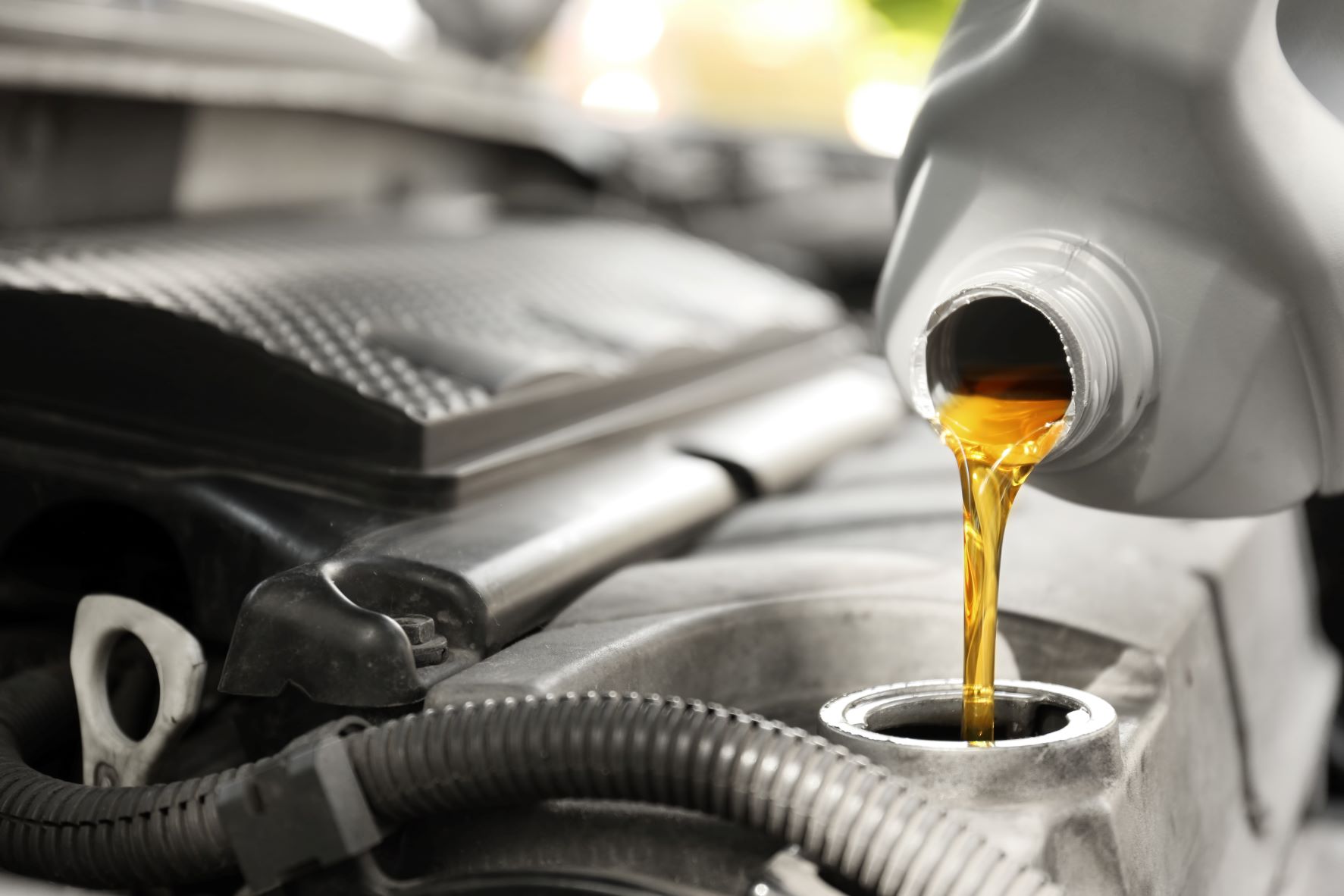
Are you thinking about swapping out your oil during your next oil change? The type of oil you lubricate your engine components with is more important than you think.
Oil is essentially the lifeblood of your engine— When you are topped off with the right type, you are prolonging the life of your car, truck, or SUV. Having the right quality and viscosity of oil in your vehicle will help you harness its best health and performance.
To determine your best bet when it comes to oil, consider the type of engine you have, the environmental conditions you cruise in, the mileage on your vehicle, and the way you drive:
-
Conventional Oil
Conventional oil is made by heating, or refining, crude oil. It comes in a variety of viscosity grades and quality levels. It is recommended for use in vehicles with simple engine designs and for those who have relatively normal driving habits.
It is the cheapest type of oil but does require more regular oil changes— around every three months or 3,000 miles.
- Tip: Should you need to stick to conventional oil but have more severe driving habits, opt for a type with a higher viscosity.
-
Full Synthetic Oil
While synthetic oil still originates from crude oil, it has gone through a highly complicated chemical engineering process. It has fewer impurities than conventional motor oil and has higher-performing properties and additives. If you live in a climate with extreme temperatures, filling up with full synthetic will keep you performing at a more steady pace.
This type of oil has a naturally higher viscosity index, making it better for those who do a lot of heavy towing, off-roading, and stop-and-go driving in cold or hot weather.
While full synthetic oil is significantly more expensive than conventional motor oil, it provides superior protection for your engine and only needs to be changed every 7,500 to 15,000 miles. Its recommended mileage interval will depend on your vehicle type and the brand of oil you use. Ask your technician for specifics.
- Tip: The age of your car should be taken into consideration if you are thinking about transitioning over to synthetic oil. Old gunk that could be surrounding your oil gaskets will be eaten away by it, potentially exposing minor leaks. This can lead to dangerously low levels of oil very quickly. It is especially important to keep an eye on your oil level after making the swap in an older vehicle.
-
Synthetic Blend Oil
Synthetic blend oil contains both conventional motor oil and synthetic. It is especially good for vehicles that have simple engines but would still benefit from higher performance in cold conditions. It also offers more resistance to oxidation than conventional oil alone.
While the recommended oil change interval for synthetic blends varies by product, you can usually go 5,000 to 7,000 miles with normal driving habits.
- Tip: Your owner’s manual can give you a good idea of what viscosity level to seek out. Synthetic blends are often the perfect fit for old vehicles with higher viscosity and protection needs.
-
High-Mileage Motor Oil
High-mileage oil is specifically formulated for newer models with more than 75,000 miles on their odometer. It is a unique formula with additives that help to prevent oil leaks and burn-off. It is usually fully synthetic, offering its high-performance benefits and higher viscosity.
- Tip: Ask a trusted technician if high-mileage oil is right for you, as well as when you should make the swap based on your model, environment, and driving habits.
Cruising around Clearfield, Utah, and in need of an oil change? Stop into Master Muffler Clearfield today to find out what kind of oil will be best for your car and get it swapped out by our talented technicians. When you opt for the right type of oil and put your vehicle into the hands of passionate auto experts, you will prolong its life and maintain its maximum performance.
Related Posts
Key Takeaways On average, passenger vehicle tires last 40,000 to 60,000 miles, depending on type, driving habits, and maintenance. Replace tires when tread depth reaches 2/32”, if damaged, or older than 10 years. Regular rotation, alignment, and proper inflation extend tire life. Aggressive driving, poor roads, and harsh weather shorten tire lifespan. Take advantage [...]
When you think about car maintenance, you probably focus on oil changes, tire rotations, and maybe even brake pad replacement. But what about your brake fluid? If you’ve ever wondered, “What does brake fluid do?” or “Why is brake fluid important?”, you’re not alone. Brake fluid might not be the most talked-about part of [...]
Is that high-pitched squeal from your brakes driving you—and everyone else—crazy? Don’t ignore it. Squeaky brakes aren’t just annoying, they’re your car’s way of saying something needs attention. Whether you're cruising through Salt Lake City or winding up Idaho’s mountain passes, here’s what’s likely going on, how you can fix it, and when it [...]





